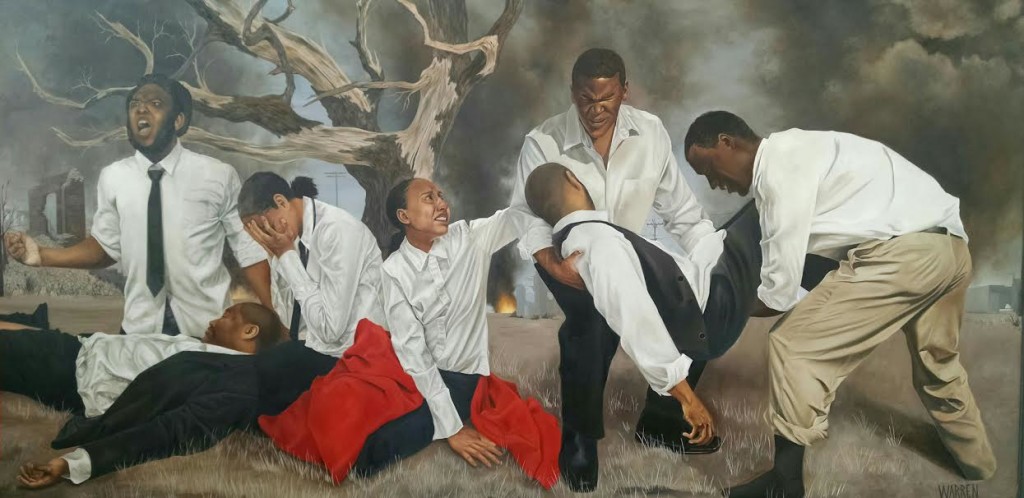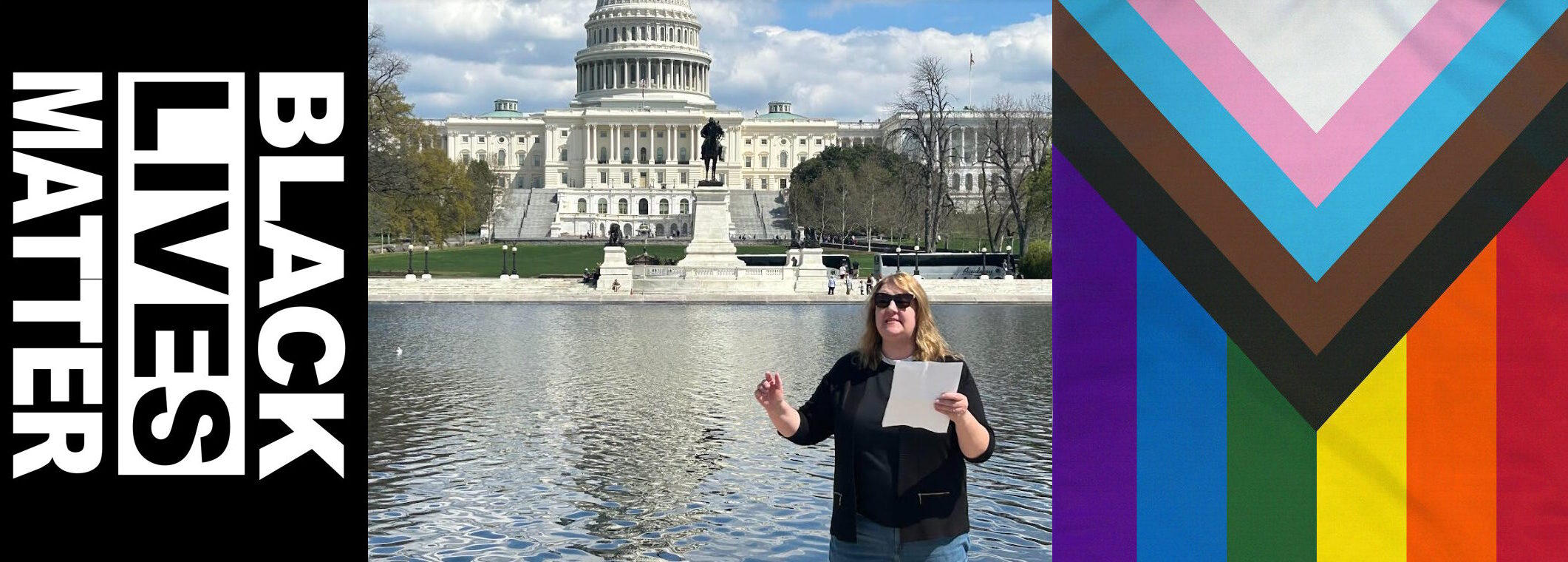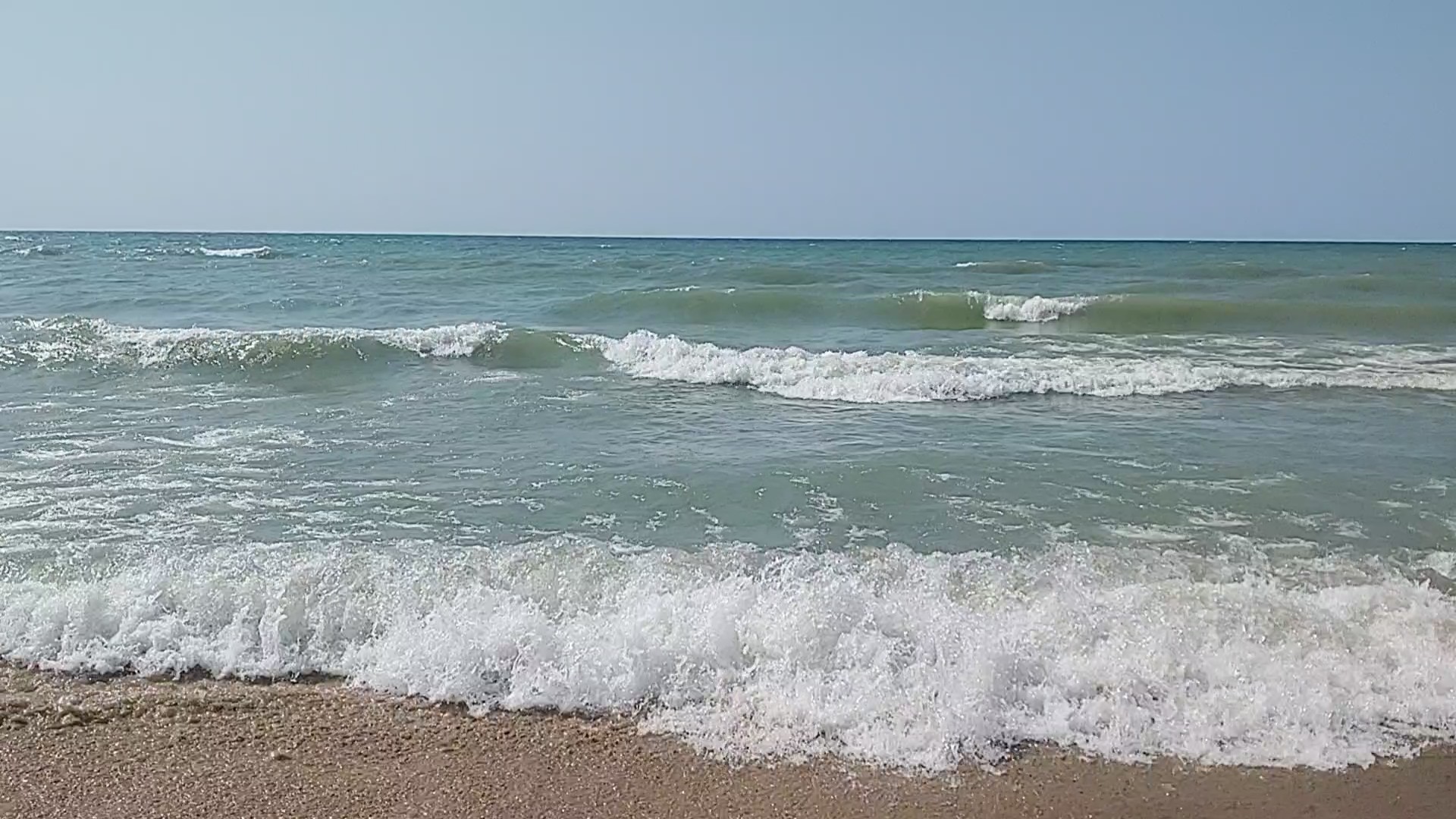
What is Justice?
On Thursday evening, December 4th 2015, the bells of St. Paul’s United Methodist Church in San Bernadino, CA rang out 16 times. The bells were ringing in memory of the dead. Present were clergy from seven area churches as well as representatives from Presbyterian Disaster Assistance to help with counseling those who were attending the prayer vigil. The prayers and the counseling was greatly needed. The entire San Bernadino community and the entire nation was shocked by another terrible shooting this past Wednesday. –The shooting of the day was by a county employee, a restaurant inspector and his wife who entered a county awards ceremony and opened fire with automatic and hand held weapons. The police estimate that 150 rounds were shot off inside the Inland Regional Center. 14 people were gunned down and killed and 21 were wounded. The couple, Tashfeen Malik aged 27 and her husband Syed Rizwan Farook age 28 have now been identified as sympathetic or to have ties to the terrorist group ISIL. The two are survived by their six month old daughter.
But at the prayer vigil, the pastors spoke about how the City of San Bernadino was suffering under a deep darkness. The trouble there began loss of Kaiser Steel Mill in 1983, and then in 1992, when the Santa Fe Railroad repair yards shut down. The biggest and quickest hit was the closure of Norton Air Force base in 1994. –12,600 jobs were gone in a year. Unemployment soared to 15%. The city suffered immensely and the per capita income fell to $35,000 while home foreclosures spiked. They became known for the highest homelessness rate in the nation. Efforts to fix problems were hampered by California’s sweeping state mandated laws. By 2012 the city was was bankrupt. The economic situation in San Bernadino was rated as the second worst in the United States, only behind Detroit.
As the San Bernadino Community and the entire nation grieves another mass shooting, the arguments stack up faster than our daily body count. Some people argue for more practical measures like background checks and gun control, while others advocate for personal defense with open carry and well armed citizens. There are some people who point to causes as diverse as the local or global economy and they talk about the unfair policies on minimum wage, taxes and free trade. Others blame religion for creating radicalized followers of Jesus who shoot people at Planned Parenthood Clinics or followers of Mohammed who murder people who are attending a rock concert in Paris.
While all of these diverse discussion are going on there is one common theme that is the foundation for all of them. One basis that is fundamental. –Everyone is longing for peace and trying to find an easy solution to this global crisis of violence. But peace is never something that easy or simple. It can only be brought about by people who are committed wholeheartedly to the practice of Justice.
Justice? What exactly is justice? Is it only another word for the punishment that is given to someone when they commit a crime? No, justice is something that is much bigger than the legal system and the judges who have the difficult job of untangling the webs of evidence that actually get to be presented in court. Justice is, at its heart, a system of fairness, honesty and equity that is so much bigger and all encompassing than the courtroom. –It is a way of loving and caring for others, a way of being and thinking about the world. Justice and the way that it is practiced by humanity is fundamentally a philosophy, one that has its roots deep in the morality of religion. And while we look hopefully toward the day of Christ’s return and his righting of all of the wrongs of the world with his perfect justice, we here today are left with the decisions on how ever are we to best live on this planet justly in order to be able to live in peace.
The earliest western philosophers to think deeply about the nature of justice were the Greek philosophers of Plato and Aristotle. Plato saw justice as a requirement for establishing an orderly society, with everyone serving their appropriate role. Everyone in their place. For Aristotle, justice was what was fair and it involved equal distribution of goods and the correction of inequalities. But into this Greek political system of thoughtful equality, the Roman empire swept in with their mighty legions and with “might makes right” they efficiently reordered society with the Romans and the Emperor in charge of every land they could physically march into.
Into this situation with the Jewish people under oppression by the Romans, a new hope was born. The baby was named Jesus and was born to a humble girl named Mary in a barn in Bethlehem. But instead of being the conquering Messiah, the hero that would overthrow the entire Roman empire, the fight that the son of God would begin would be for the hearts and minds of humananity. — A savior for the world and for the transformation of how we are to think of and treat each other. Instead of perpetuating an ordered society where women and slaves knew their roles and kept their place, Jesus instead ushered us into a new upside down kingdom of radical equality for all people and justice that fundamentally transformed our thinking. His Sermon on the Mount, the parable of the Good Samaritan and his love and concern for the outcasts and the forgotten of society was essentially a mode of justice and fairness that he embodied and lived and ultimately died for.
After Christianity was adopted as the official religion by the Roman Emperor Constantine, the theologian Augustine began to dream of new just ways of existing together as humanity that was not based on the Roman Empire rule of “Might makes right”. Augustine’s theology and theories of justice were summarized in his book “City of God” by two basic rules: 1) Harm no one and 2) try to help others as best as you can. A later theologian, Thomas Aquinas also took up Augustine’s theology justice and expanded on it. These Christian theologians provided the basis for the work of Immanuel Kant who created an entire complete philosophical system of ethics and justice. For Kant, there were three principles that informed what justice should be. 1) That the laws that were passed should be able to applied universally to everyone. There were to be no exceptions. 2) A radical imperative to treat every person as an “end onto themselves” and not a means for someone else’s gain. (A principle that echoes the Golden Rule in Matthew 7:12) And 3) a principle of moral autonomy that every person is granted by God with the dignity and the responsibility to act rightly in a universal way toward others. While these concepts are difficult to explain, it is always easier to illustrate things with a story, but I could not find one that worked, so I wrote one instead.)
It is always easier to illustrate a point with a story. Once there was a prince who grew into a man and thought that he had the whole world figured out. When people came into the royal court with a dispute for him to settle, he would meet with each man privately and ask them what they would give to him or do for him if he decided the case in their favor. Then the Prince would simply decide every dispute based on which thing would please him the most. When the King found out about the Prince’s self serving behavior, he feared for his own position, and decided that his son needed to learn more about justice. So the King sent for the wisest old Scholar in his whole kingdom. He instructed the Scholar to take the Prince on a long journey and to not bring the Prince back until he had a better understanding of justice. So the Prince and the Scholar set out on one of the kings finest ships. The Prince proved to be worthless student and would fall sleep rather than listen to lectures. One day the skies grew dark and a strong storm blew up. The proud young Prince did not listen to the repeated warnings of the sailors and consequently was swept overboard by a rogue wave. The Scholar, seeing the Prince drowning in the sea did not hesitate but jumped in after him and held the younger man’s head above the water. The sailors tried repeatedly to throw the life ropes and even tried to go after them in a longboat, but the ocean quickly whisked the Prince and the Scholar away. All that night, the two men clung to each other through the storm. By dawn the storm had subsided and the Prince who had either saltwater or tears on his face asked the Scholar why he had jumped into the fierce seas to save him. “It is justice to do the right thing and to help others as much as you are able.” The Prince over the course of three days floating at sea thought about that and thought that he finally understood it. After three days, a small island appeared in the distance and the two men used the last of their strength to swim toward it. On the island they found and drank fresh water and ate some turtle eggs to regain their strength. Once the turtle eggs were all eaten, they noticed that there were some small birds resting on the island. So the Scholar wove together a net with a noose from vines and hid in the brush while the younger Prince ran and drove the birds past him. But once a bird was secured in the net, the Prince in his hunger grabbed the bird and laughed and ran away with it to eat it all by himself on the other side of the island. At first the Prince was very pleased with himself. He had taken what he needed to survive. But then he realized that he needed the Scholar’s help to make and to throw the net to catch more of the small birds who were even faster than he was. For three days the Prince thought about the problem and tried various tactics to capture the birds by himself. None of them worked. The Prince finally gave up and went back to where the Scholar was sitting beneath a tree, patiently fishing. The Prince mumbled an apology and the old Scholar said, “Yes. You must never treat others as a means to an end. We all can only survive or thrive together.” Months passed and the young Prince learned much from wise old Scholar on the island. He learned not only how to make fire and survive but also many lessons about justice. One day a merchant ship was drawn to the island by the smoke from their fire. The merchant himself came to the island shore along with three of his strongest sailors. After many joyful and hearty greetings, the Prince and the Scholar told the Merchant who they were. Now the merchant was a shrewd and greedy man and knew that he would be highly rewarded for returning the Prince to his father the King. But he wanted even more, and so pretended that his ship was so full of goods that he only had room to take on one more man. The Merchant then asked the Scholar, what payment could he expect to receive for bringing him along to the mainland and leaving one of his own sailors behind on the island. The Prince was shocked to hear what the Merchant was saying and immediately recognized the Merchant as displaying his own self serving and greedy attitude from earlier that year. Then the Prince responded before the Scholar could. “No, Sir Merchant. No one will remain here to die alone on this island. Throw some of your goods overboard and make enough room for all of us or I shall not return to the mainland with you, and you shall get no reward for my return to the king. There is not one thing on this earth that is worth more than the life of a single man.” Seeing that the Prince was firm in his resolve, the Merchant agreed to take all of the men back to the mainland, and even found that by rearranging his cargo that he had enough room for everyone and everything after all.
When The Prince and the Scholar were finally returned home to the King, the Prince was a changed man. He recalled all of the cases that he had heard, returned all of the goods and listened to the disputes again with a new changed heart and mind. And when it became time for the Prince to rule the kingdom in place of his father, he did so with such great wisdom and justice that his Kingdom was considered to be the so overflowing with kindness and peace that it was considered by all to the be the greatest place in all the world.
My friends, let each of us work to for justice in each of our own kingdoms. May we follow the example of Christ and allow our lives to be a source of love and kindness. May we work for justice, in both the biggest and the smallest of ways, and may all of us contribute in every way that we can to become the people of God’s peace. Amen.


